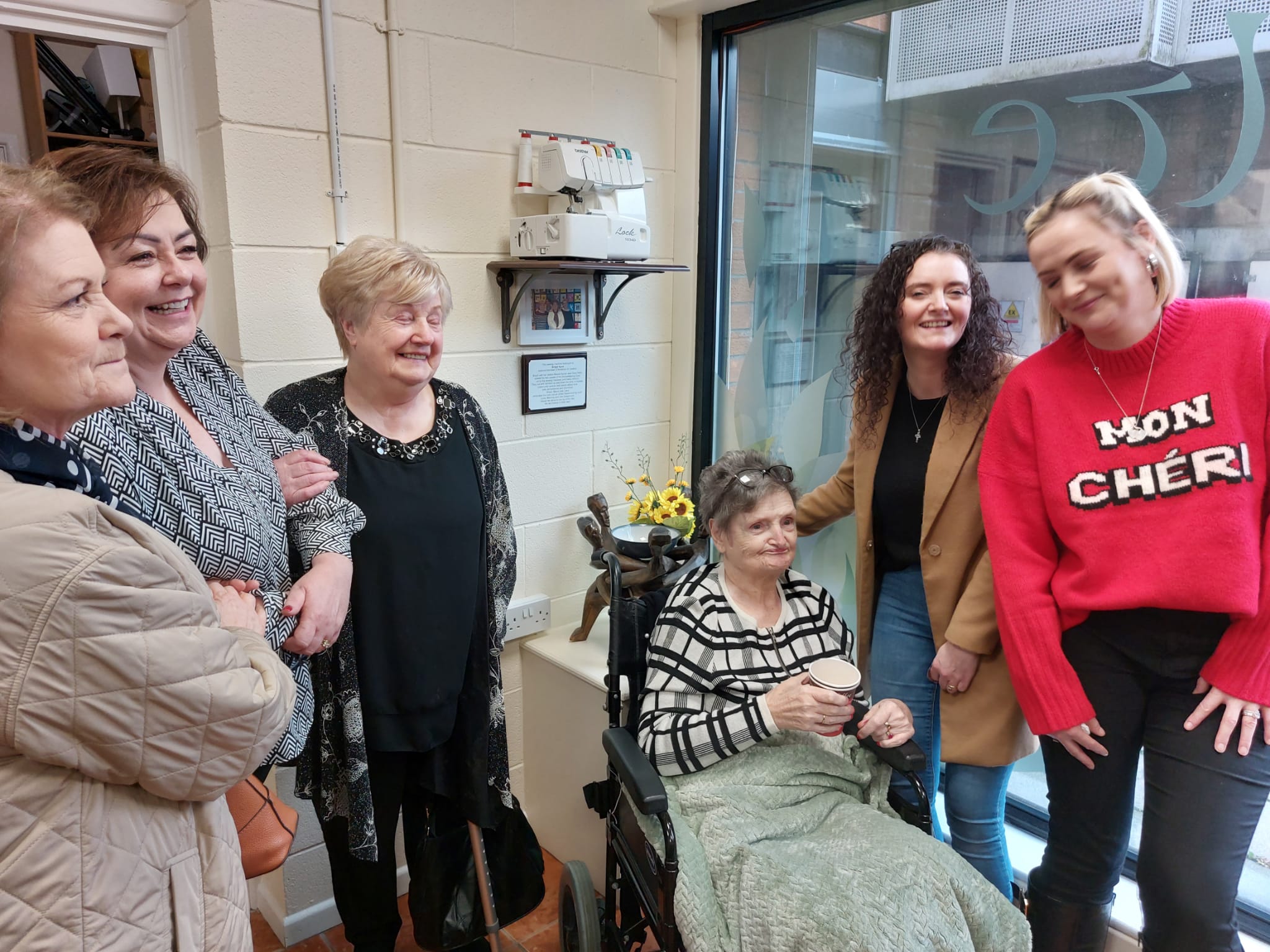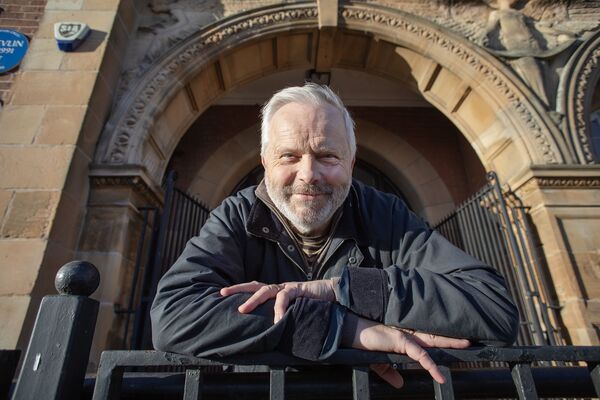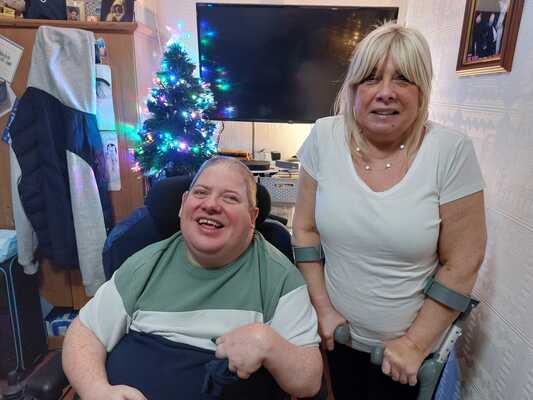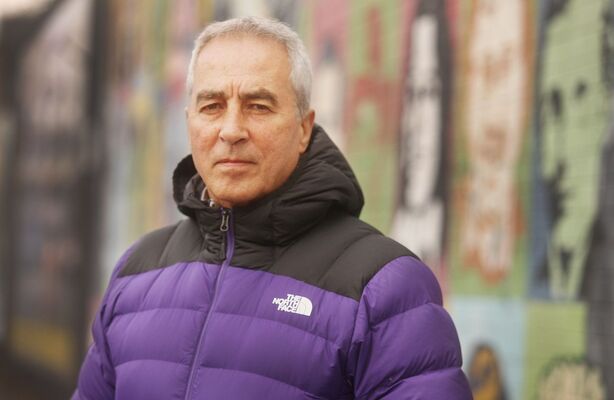THE visible legacy of three campaigning West Belfast sisters is now on display in the offices of Relatives for Justice – a simple reminder of their tireless work helping to heal the pain of grieving families who suffered the loss of a loved one during the conflict.
A small sewing machine belonging to Brigid Kane now sits unassumingly at the window of the victims’ group’s Glen Road office, gifted by the Kane family as a reminder of the role that it and so many families played in bringing to life one of RFJ’s most poignant and effective projects – the Remembering Quilt.
The initiative started in 2000 in response to the unveiling of a stained-glass window at Belfast City Hall that was dedicated to members of the RUC, British Army and UDR who had lost their lives.
Brigid Kane and her sisters Clara Reilly and Maura Hunter – along with other members of RFJ – began the process of sewing a quilt, with each square in memory of a victim of the conflict. The patches were designed by family members and told the story of a brother, a father, a daughter, a mother – any loved one who had been killed during three decades of violence. According to Andrée Murphy from RFJ, it was important to the Burns sisters that the quilt was inclusive and non-judgemental, unlike the new City Hall window.
“Clara Reilly and particularly Breige Kane and Maura Hunter could sew, as well as two other relatives, Marie Murphy and Marie Stewart, and they worked together with families, and families came night after night, coming in groups where they would design their squares," said Andrée.
“Briege, Maura and Clara had also lost two brothers. Harry died as a result of the injuries he received during the conflict and James ‘Skipper’ Burns had been killed through collusion as well. As a family that had come through the worst of atrocities, they understood families and what families needed.
Brigid's sewing machine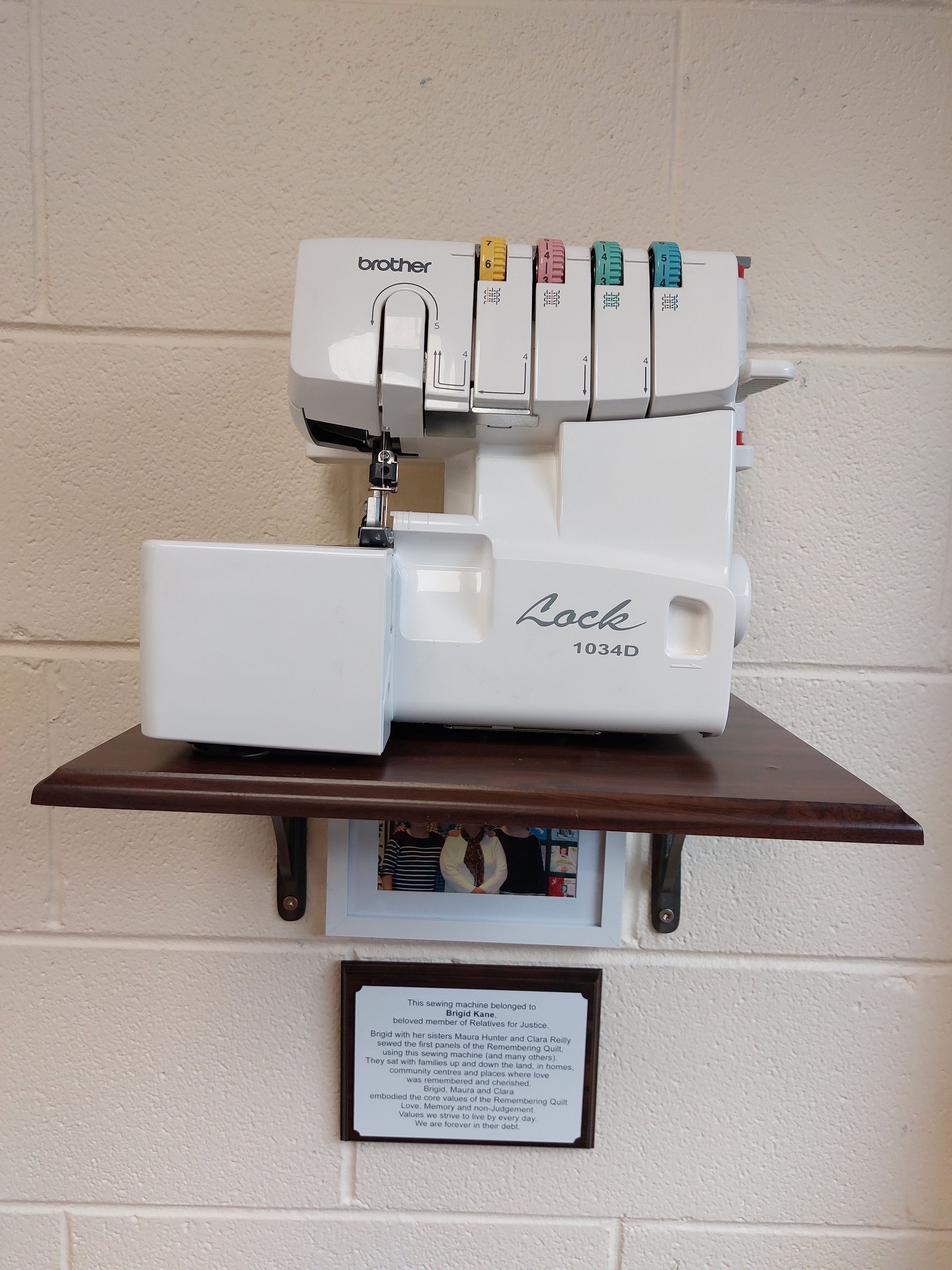
“The squares were filled with positive memories, not the circumstances of how people were killed, which is often how people end up being remembered, but of the lives they lived, why they were missed, why they were loved. It gives a better complexion of the person and why they are missed.
“City Hall was exclusive, but the Remembering Quilt was not going to be exclusive. Those three sisters said no, we would include everyone.”
The women went on to travel the country, sitting in front rooms, working on patches of the quilt with families. These meetings became not only acts of remembrance, they turned into valuable therapy sessions which played no small part in the healing process of many families.
There are now 11 quilts, which Andrée says is a formidable legacy of the work and lives of those three remarkable women.
Brigid passed away during Covid, which meant her colleagues and friends in RFJ didn’t have the chance to give her a proper goodbye. Her sewing machine will rest on the RFJ shelf as a reminder of the pioneering work that she did with families, helping them secure dignity and respect for their lost loved ones through a simple act of remembrance and creativity.
Brigid Kane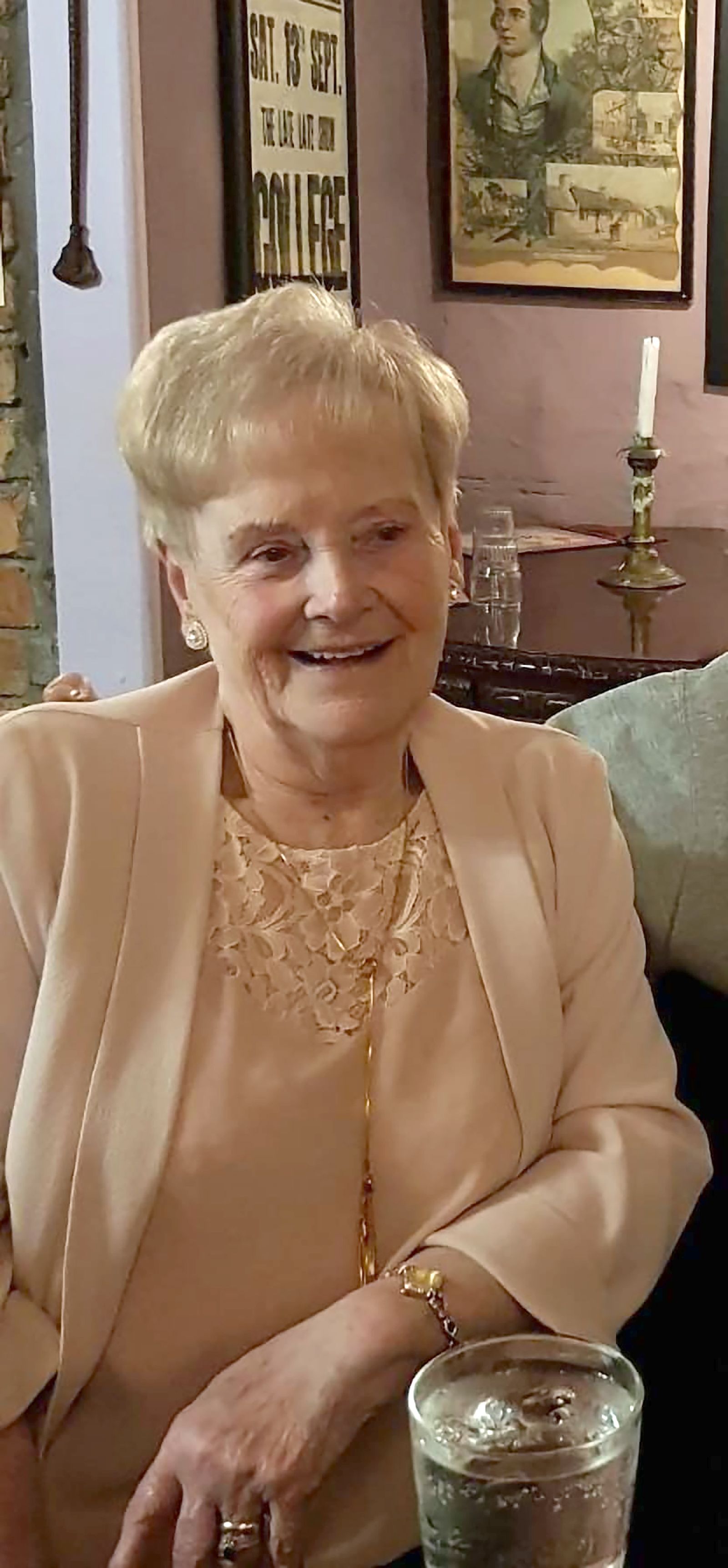
"At the heart of our work are the threads of connection, of healing, of saying we can remember with dignity and honesty and expect truth and justice and never draw a line under the past," added Andrée. "But we can carry that past with us to make a better future and contribute to peace and healing in the years to come."

